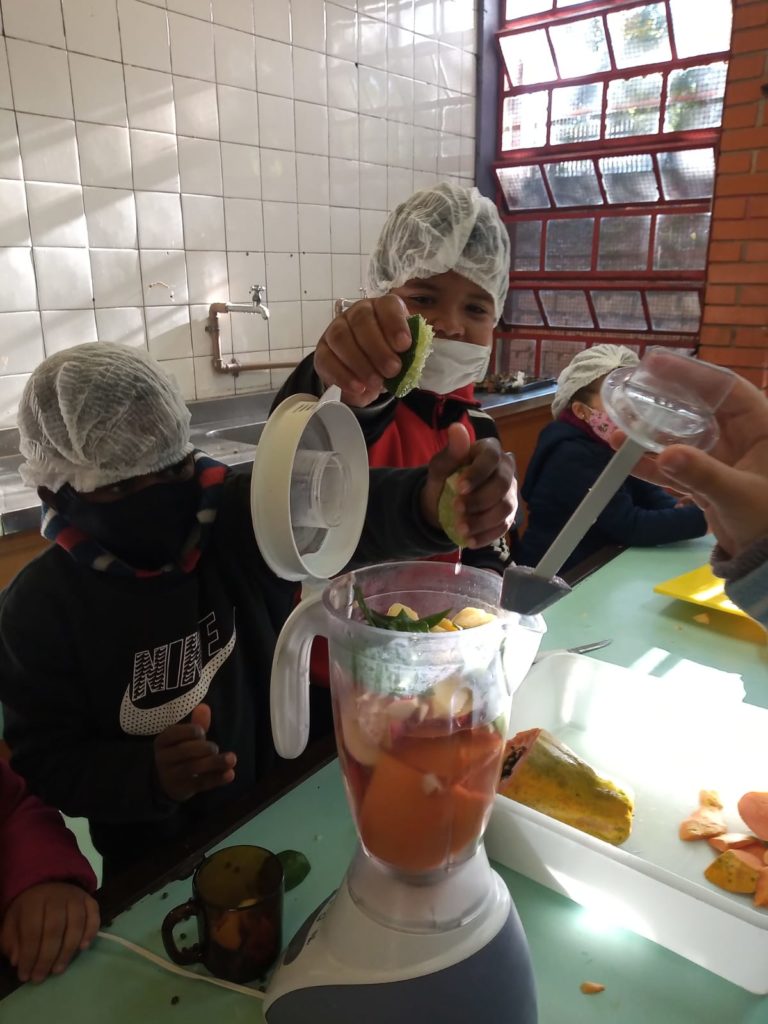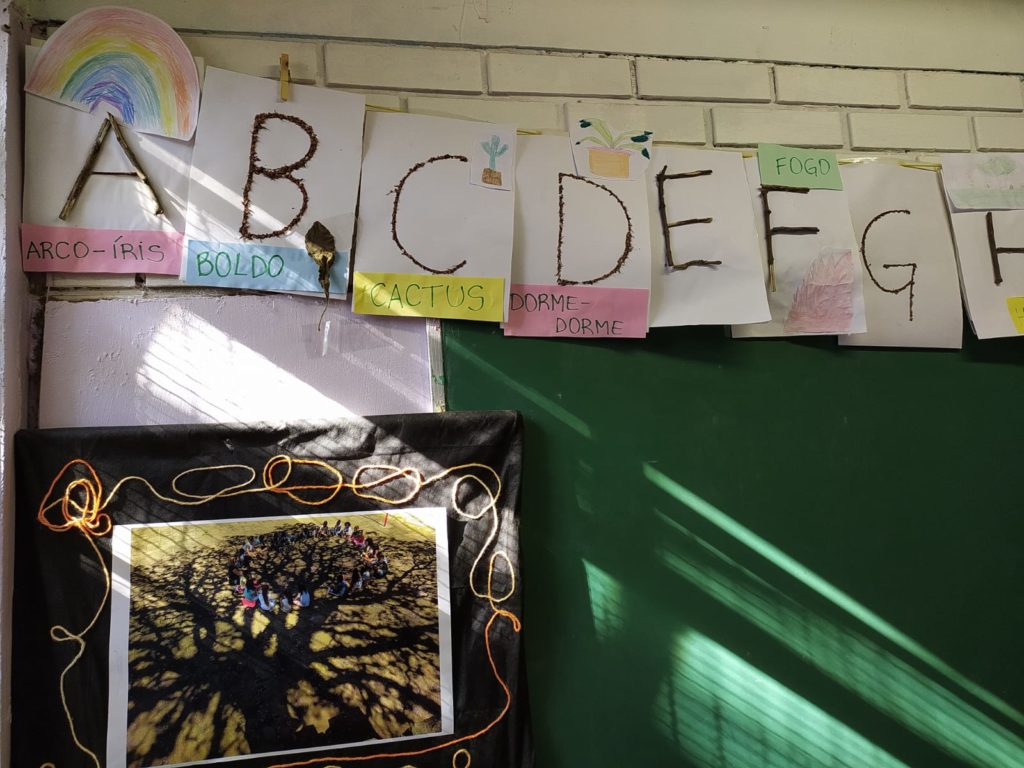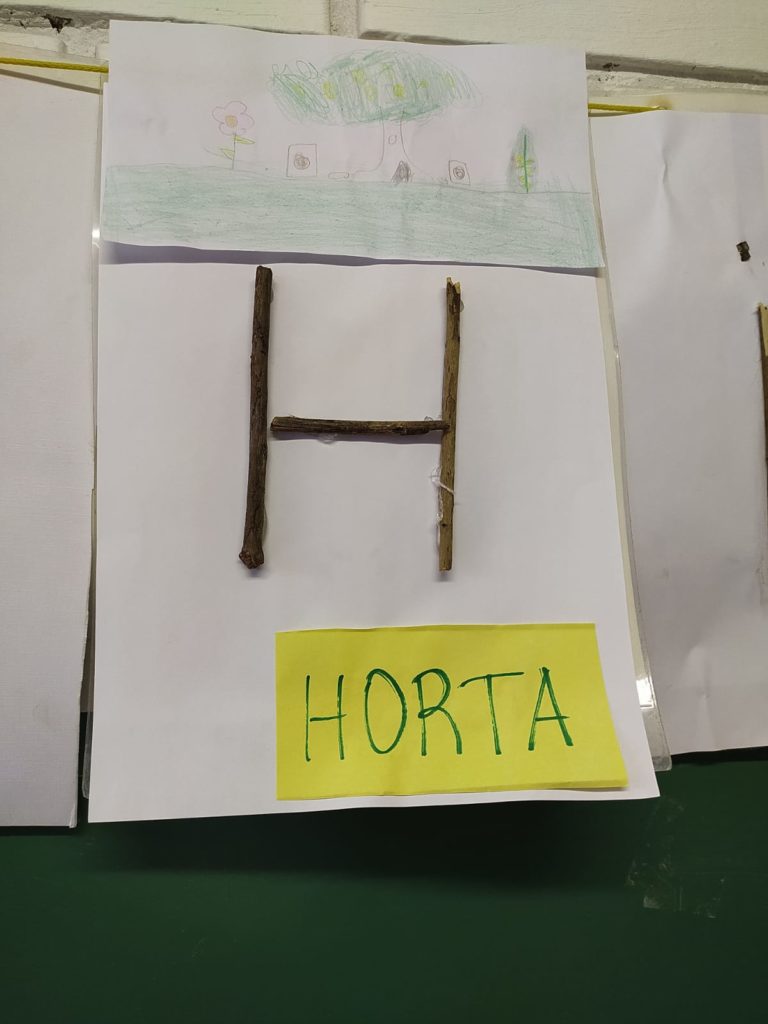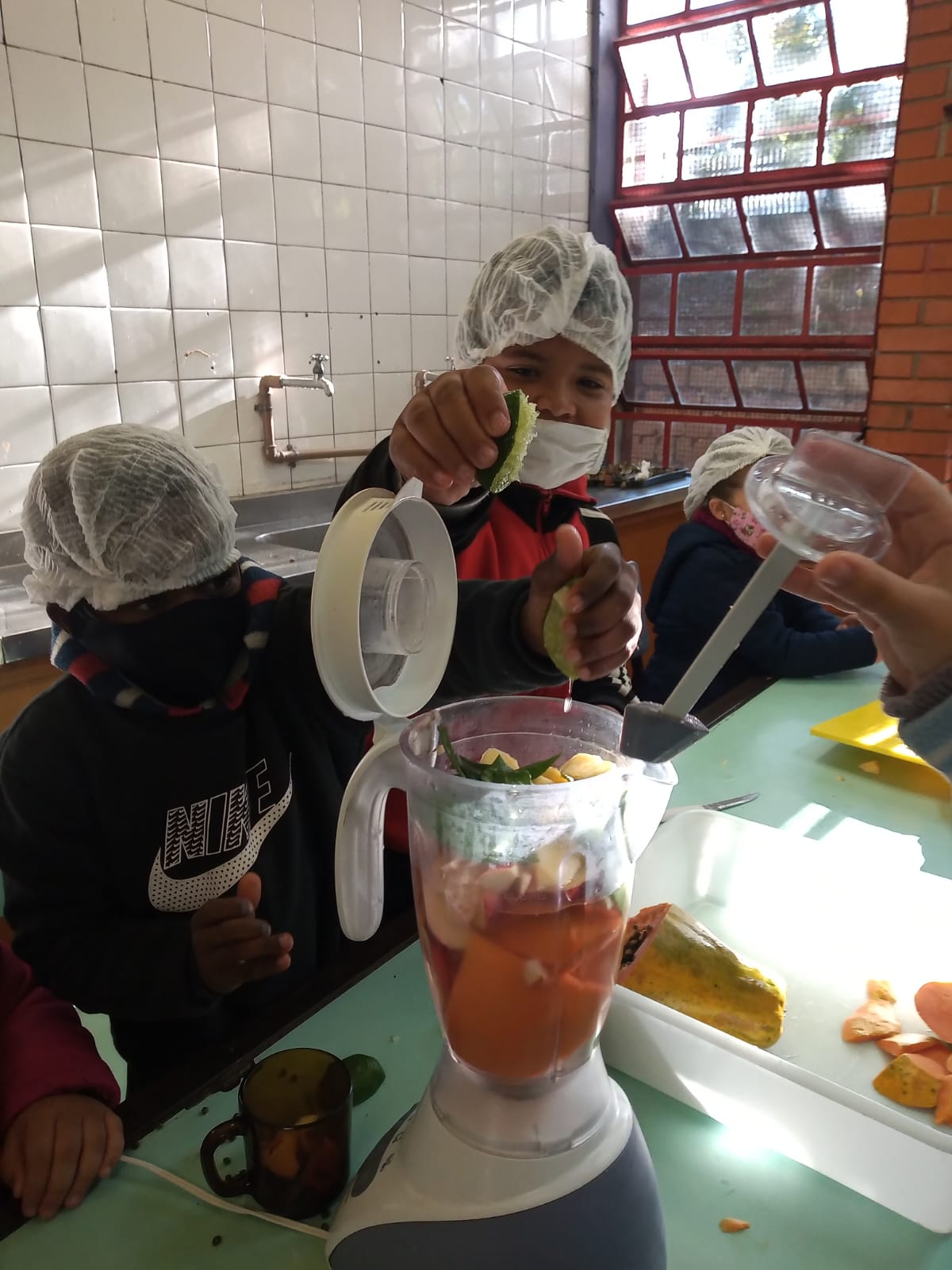Porto Alegre, Rio Grande do Sul, Brazil South Region
Background
Porto Alegre is the second Brazilian capital with the highest number of overweight people, the capital with the highest weekly consumption of soft drinks and ultra-processed foods and the capital with the most diagnoses of diabetes. On the other hand, it is a reference in the National School Feeding Program (PNAE) and has an environmental education project recognized in its education network. Therefore, a project was created to transform school gardens into spaces for promoting healthy eating habits, as a result of the articulation of professionals from the municipal and state spheres in the areas of health, education, agriculture, school feeding and the environment.
There was a call for Crescer Saudável, linked to the Health at School Program (PSE), to promote healthy habits and prevent childhood obesity in students. Then, a strategy was developed to treat the school garden as a space to promote healthy eating, with the provision of equipment kits and training for schools. The experience ‘School garden, from the vase to the orchard’ was a finalist for the APS Forte Award: Integrality of Care, which brings together the practices developed by Primary Health Care for the benefit of community health, organized by the Ministry of Health of Brazil and the Pan American Organization of Health (PAHO).
Activities developed
The actions began in 2019 with the arrival of the first funds from the Crescer Saudável program. Jointly with municipal and state entities, in the areas of health and education, the project to distribute kits with equipment to take care of the schools gardens was defined. After listening to the municipal network of environmental educators, it was identified that the acquisition of materials and tools were a bottleneck for the implementation of school gardens.
The kit purchased contained a hoe, rake, wheelbarrow and spade, in regular and small sizes for children. A partnership was established with the Federal University of Rio Grande do Sul (UFRGS) to train professionals and a virtual course was offered. There was great interest, with more than 400 subscribers, who organized themselves into a WhatsApp group that is still active today. The course was systematized and is available digitally (only in Portuguese), dealing with topics such as the pedagogical use of school gardens.
The kits were distributed in 2021, with the reopening of schools. The Porto Alegre Urban Cleaning Department provided land free of charge, as well as the agriculture sector provided seedlings. Then, the structuring of the gardens and the actions was carried out by each school according to their peculiarities and needs, totaling 203 school centers in which the gardens were converted into spaces that promote healthy eating habits and environmental education in an integrated way.
Institutions involved
Municipal Secretary of Health of Porto Alegre; Secretary of State for Health of Rio Grande do Sul; Municipal Secretary of Education of Porto Alegre; Secretary of State for Education of Rio Grande do Sul; Federal University of Rio Grande do Sul (UFRGS); Department of Urban Cleaning of Porto Alegre; Demonstrative Agricultural Center of the Municipal Secretariat of Economic Development.
Qualitative and quantitative data
203 municipal, state and affiliated schools received tool kits. 243 tool kits were delivered, a quantity that increased according to demand and according to the availability of resources from partners to support the project.
Results
- Reconnection of students with nature;
- Understanding of the environment as a space to be taken care of;
- Adoption of school gardens as a pedagogical tool;
- Discussions on the Human Right to Adequate Food on this production space;
- Bringing students closer to food production;
- Actions carried out in schools are reproduced by many children in their homes, as families take the community experiences to the school space, provide seedlings and participate in the activities, when possible;
- Articulation between educators from municipal and state networks, rarely together in exchange spaces;
- Relevant care issues related to the COVID-19 pandemic were also reported by established networks;
- Articulation with agencies that provide fertilized land and with those that offer plant seedlings and technical assistance;
- More access to resources for schools.
Challenges
- To stimulate the understanding that the school garden is also a space for promoting healthy eating;
- Teachers are used to working with biology, geography, environment, but dealing with food is still something new;
- Scenario of economic crisis and food insecurity makes healthy diets less accessible;
- Necessity of more training with teachers and principals on the food guide for the Brazilian population;
Advances
- Work is born from the bottom up;
- In school practice, each one adopts strategies according to its needs;
- Release of workload for teachers, distribution of inputs, materials, with support and formalization;
- School gardens engage the school community in a collective space for meetings and decisions;
- Spark of possibilities: nurturing not just food, but something bigger, with purpose, engagement and participation.
Photos of the experience



Check out more about the subject of educational school gardens:
Class link: Projeto Horta UFRGS – YouTube
Instagram: @hortaescolar.poa



